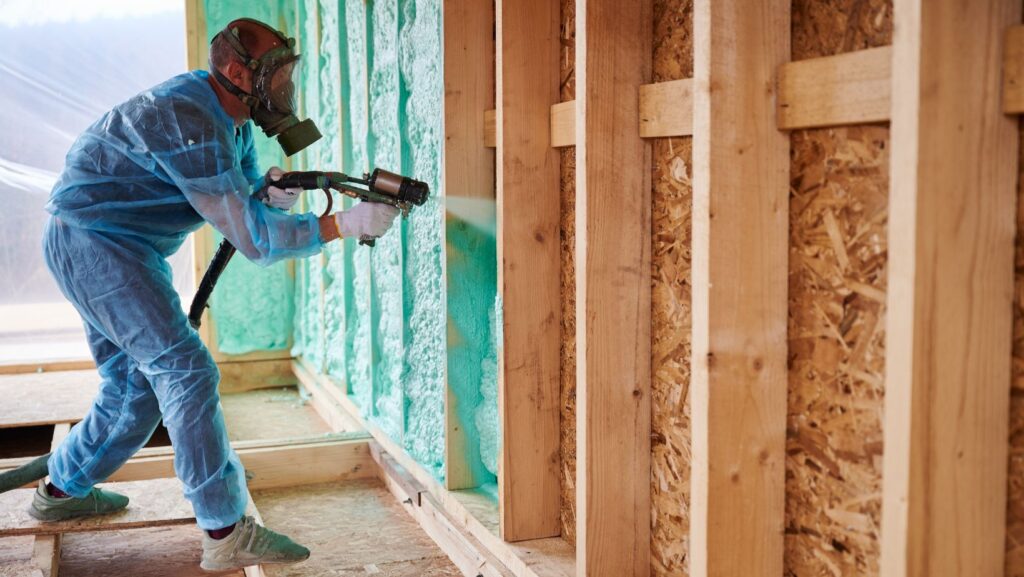Launching a spray foam insulation business can be lucrative in today’s construction and renovation industry. As energy efficiency continues to be a priority for homeowners and businesses alike, the demand for effective insulation solutions like spray foam is rising. We will outline the essential steps to start and grow a profitable spray foam insulation business. From understanding the market to acquiring the necessary skills and equipment, each aspect is crucial in establishing a successful enterprise in this field.
Market Research and Opportunity Identification
Before entering the business, thorough market research is essential. Identify the local demand for spray foam insulation services. Evaluate the competition and understand their pricing, service offerings, and customer base. Look for opportunities to differentiate your business by offering superior customer service, eco-friendly insulation options, or specialized applications like soundproofing or moisture control. Understanding these market dynamics will help you position your company strategically for growth and profitability.
Legal and Regulatory Requirements
Navigating the legal and regulatory landscape is crucial when starting any business, including a spray foam insulation venture. Research and comply with local, state, and federal regulations regarding business registration, licenses, permits, and insurance. Ensure your business meets environmental rules regarding using and disposing of insulation materials. Compliance avoids legal troubles and builds trust with clients who value professionalism and adherence to standards in their contractors.
Acquiring Skills and Training
Proficiency in applying spray foam insulation is fundamental to delivering high-quality service. While formal education in construction or insulation techniques is beneficial, specific training and certification in spray foam application are often necessary. Many manufacturers offer training programs that cover safety protocols, equipment operation, and proper application techniques. Investing in training enhances your skills and instills confidence in your customers regarding your expertise and ability to deliver effective insulation solutions.
Equipment and Material Acquisition
Investing in the right equipment and materials is crucial for operational efficiency and quality service delivery. Research reputable suppliers of spray foam insulation materials and equipment. Consider factors such as the types of insulation you plan to offer (e.g., open-cell vs. closed-cell foam) and the scale of your operations.

Acquire equipment like spray guns, proportioners, hoses, and safety gear that meet industry standards and manufacturer recommendations. Quality equipment ensures better application results, enhances safety, and reduces operational downtime.
Developing a Marketing Strategy
Effective marketing is essential to attract and retain clients in the competitive insulation industry. Establish an online presence through a professional website that showcases your services, previous projects, and customer testimonials. Utilize social media platforms to engage with potential customers and share informative content about the benefits of spray foam insulation. Network with local contractors, real estate agents, and property managers who can refer clients to your business. For instance, in regions where traditional media is more influential, strategic EDDM mailing services (Every Door Direct Mail) can be a powerful tool to reach a broad local audience. These services allow businesses to send tailored mailers to targeted neighborhoods, maximizing their promotional efforts. Implementing a robust marketing strategy tailored to your target market will help generate leads and build your reputation in the community.
Building Partnerships and Networking
Networking and forming partnerships can significantly accelerate the growth of your spray foam insulation business. Collaborate with architects, builders, and interior designers who can integrate your services into their projects. Attend industry trade shows, seminars, and local business networking events to connect with potential clients and industry peers. Building a network of trusted partners expands your client base and opens doors to new opportunities for collaboration and business development.
Providing Exceptional Customer Service
Delivering exceptional customer service is paramount to establishing a solid reputation and fostering client loyalty. From the initial consultation to post-installation support, prioritize clear communication, transparency, and responsiveness.

Address customer inquiries promptly, provide detailed project estimates, and ensure thorough cleanup after each job. Follow up with clients to ensure their satisfaction and encourage them to provide feedback and testimonials. Building a reputation for reliability and customer satisfaction will lead to repeat business and referrals, driving sustained growth for your spray foam insulation business.
Expanding Services and Diversifying Offerings
As your spray foam insulation business grows, consider expanding your service offerings to meet diverse customer needs and market demands. Explore additional solutions such as attic insulation, basement encapsulation, or removal and replacement services. Diversifying your offerings increases revenue streams and allows you to cater to a broader range of clients and project types. Stay informed about emerging insulation technologies and sustainable practices to stay competitive and attract eco-conscious customers. By continuously evolving and adapting to market trends, you can solidify your position as a trusted provider of comprehensive insulation solutions in your region.
To successfully start a spray foam insulation business requires careful planning, investment in training and equipment, and effective marketing strategies. By understanding the market demand, complying with legal requirements, acquiring the necessary skills and equipment, and focusing on exceptional customer service, you can position your business for success in the competitive insulation industry. Continuously seek growth opportunities, stay updated on industry trends, and maintain high service delivery standards to build a thriving enterprise that meets residential and commercial clients’ insulation needs.

